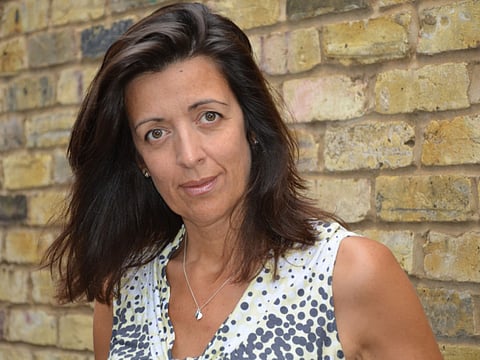Louise Doughty: I don’t think I write thrillers
The author of ‘Apple Tree Yard’ on the Indonesian roots of her new novel ‘Black Water’ — and why she’s glad to see the back of ‘chicklit’

Louise Doughty was born in the East Midlands in 1963. She took an MA in creative writing at the University of East Anglia and has written eight novels, including her latest, “Black Water”, which was published by Faber last month.
“Black Water” is your eighth novel, and is set in Bali, a place you’d never been to until a few years ago. Why are your books always changing direction?
I’ve realised over the years that I’m just no good at thinking strategically as a novelist. I never think, oh this did really well, I’ll do it again. I’m much more likely to think, oh this did really well, let’s do something completely different now.
And it is very different from the two novels that preceded it, “Whatever You Love” and “Apple Tree Yard”...
They were both female first-person narratives, with a lot in the present tense, so they were very immediate. They were also very much about women’s preoccupations at certain stages in life: so “Whatever You Love”, having children, “Apple Tree Yard”, being a middle-aged woman having knee tremblers in parliament. I think I just really needed to do something in a different tone of voice.
So, how did “Black Water” take shape?
I was at the Ubud literary festival on Bali in 2012, and I had terrible jet lag. I was lying awake every night, and the night-time in rural Indonesia is very noisy — geckoes on the roof, monkeys, cicadas, insects, monsoon rain. So I was awake a lot, listening to the noises, and a really strong image came to me of a man lying awake at night in a hut in Indonesia, mortally afraid.
Why is he so afraid?
In the opening pages, he decides that men with machetes are going to come and kill him. But I didn’t actually know who he was, I didn’t know how old he was, I didn’t know why he was there. But what I did know about him was that what he was afraid of wasn’t what was going to happen; he was afraid of something that he himself had done.
The novel goes into the history of Indonesia, and in particular the massacres of communists and suspected communists in 1965. And your character, Harper, is deeply implicated, isn’t he?
Of course, he’s a metaphor for Indonesia itself. Because a military dictator came to power in 1965, there was never any truth and reconciliation, there was never any coming to terms with this massacre.
It’s still very difficult to talk about 1965. Nobody would say, for many years, if their father had been killed in 1965, because any family association with a communist, you would lose your job, it was dangerous. And also, in a lot of places, it was whole families that were killed.
Your earliest novels, “Crazy Paving” and “Dance With Me”, got mixed in with “chicklit”. How did that feel?
“Crazy Paving” is about urban terrorism and chaos theory — but it had single women running around London as its heroines. “Dance With Me” was about mental illness, betrayal and ghosts. So there was this awful phase — and thank heavens it’s gone — where no young woman could write about what it was like to be a young woman in any style whatsoever without being lumped in that bracket.
Your novel “Fires in the Dark” was, again, very different.
I was always going to write that book. That was my Holocaust novel, and that was about a group of nomadic Kalderash Roma in central Europe in 1927; they go through the great depression, the rise of Nazism, the Second World War — and then it ends with the Prague uprising, May 1945.
My family left central Europe in the mid-19th century, possibly earlier, so that wasn’t what had happened to our family, but it was what might have happened if we had stayed.
“Apple Tree Yard” really caught people’s imagination – and now it’s becoming a TV series, with Emily Watson in the lead. Did you intend to write a thriller?
Well, the weird thing is, I don’t think I’m writing thrillers, but quite a lot of other people seem to. I thought “Apple Tree Yard” was a feminist indictment of criminal justice.
So, the big question is — will the next book be yet another dramatic change?
I don’t know how to do it any other way. I’m just not capable of it. I can only write whatever idea grips my by the throat and holds me against the wall, and that’s what I’ve done so far, and that’s what I’ve got to keep doing. I don’t think I can write cynically.
–Guardian News & Media Ltd


